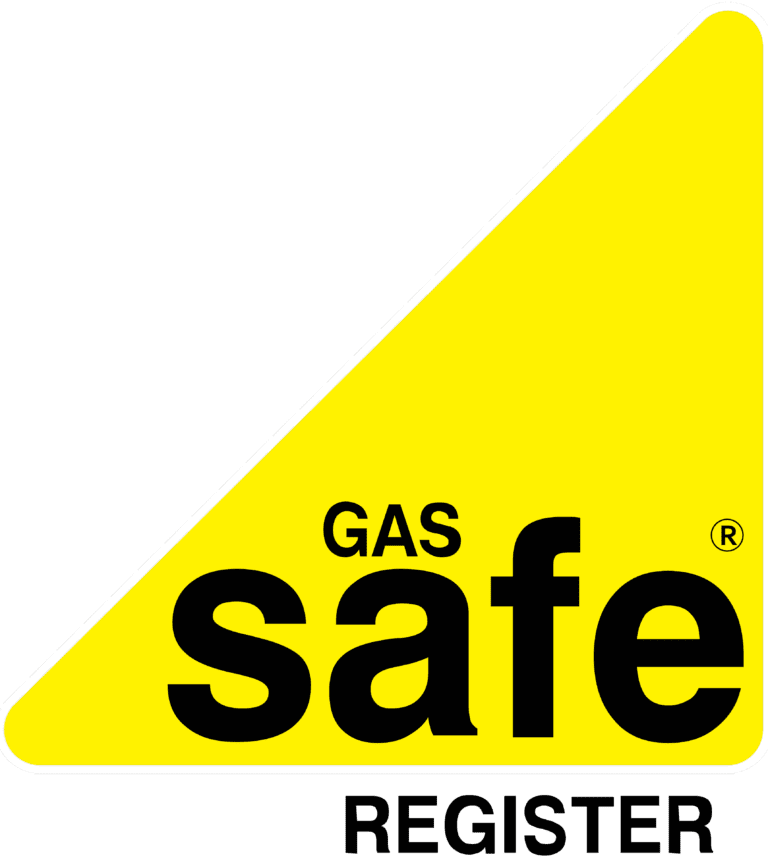Table of Contents
Gas boilers are an integral part of modern heating systems, providing both warmth and hot water for homes and businesses. Understanding how a gas boiler works, the different types available, and their efficiency can help homeowners make informed decisions about their heating needs. This article delves into the intricacies of regular boilers, how they function, and when it might be time to consider installing a new boiler.
What is a Gas Boiler and How Does It Work?
Understanding the Basics of a Gas Boiler
A gas boiler is a central heating appliance that uses gas as its primary fuel source to heat water. This heated water is then circulated through radiators or underfloor heating systems to provide warmth throughout a home. In addition to heating spaces, a gas boiler can also supply hot water for taps and showers, making it a versatile component of a central heating system. Unlike combi boilers, which heat water on demand, regular boilers typically utilise a hot water storage cylinder, allowing for a larger volume of hot water to be available at any time.
The Process of Gas Boiler Work
The process of gas boiler work begins with the ignition of gas inside the boiler’s combustion chamber. This gas is mixed with air and ignited to produce a flame, which then heats a heat exchanger. The heat exchanger transfers the heat to the water flowing through it, effectively heating the water. As the water is heated, it rises due to convection and is pumped through the heating system to radiators or hot taps. When the thermostat signals that the desired temperature is reached, the boiler will shut off until additional heating is needed.
Key Components of a Gas Boiler
The key components of a gas boiler include the burner, heat exchanger, flue, and controls. The burner is responsible for the combustion of gas, while the heat exchanger plays a crucial role in transferring heat to the water. The flue is necessary for venting exhaust gases safely outside. Additionally, modern gas boilers come equipped with controls that allow for the regulation of temperature and pressure, ensuring optimal performance and safety within the system. Understanding these components is essential for anyone considering a new boiler installation or evaluating their current heating system.
What are the Different Types of Boilers in a Central Heating System?
Overview of Regular Boilers and Combi Boilers
In the realm of central heating systems, there are various types of boilers to consider. Regular boilers, also known as conventional or heat only boilers, require a separate hot water storage cylinder and are ideal for larger households with higher hot water demands. On the other hand, combi boilers provide hot water on demand without the need for a separate cylinder, making them ideal for smaller homes with limited space. Each type of boiler has its advantages, and the choice largely depends on the specific heating and hot water requirements of a household.
Heat Only Boilers vs. System Boilers
Heat only boilers and system boilers are both popular choices for central heating systems. A heat only boiler requires a cold water storage tank and a hot water storage cylinder, while a system boiler has a built-in pump and expansion vessel, simplifying the installation process. System boilers are designed to provide a constant supply of hot water and can be more efficient than heat only boilers, especially for homes that require a high volume of hot water. Understanding the differences between these types of boilers can help homeowners choose the right system for their needs.
How to Choose the Right Type of Boiler for Your Home
Choosing the right type of boiler for your home involves evaluating several factors, including the size of your property, the number of bathrooms, and your hot water usage patterns. If your household requires a significant amount of hot water at peak times, a regular boiler with a hot water storage cylinder may be the best option. Conversely, if space is at a premium and your hot water demands are moderate, a combi boiler could be the right choice. Consulting with a gas safe engineer can provide valuable insights into which type of boiler would best suit your home’s heating system.
How Does a Regular Boiler Provide Heat and Hot Water?
The Role of the Hot Water Storage Cylinder
The hot water storage cylinder is a critical component of a regular boiler system, as it stores heated water for use throughout the day. This cylinder allows for a larger volume of hot water to be readily available, ensuring that multiple taps or showers can be used simultaneously without running out of hot water. The efficiency of the hot water storage cylinder can significantly impact the overall performance of the heating system, making it essential to choose a correctly sized cylinder that meets your household’s hot water requirements.
Understanding the Heating and Hot Water Process
The heating and hot water process in a regular boiler begins with the heating of water in the boiler. Once the water reaches the desired temperature, it is pumped to the hot water storage cylinder. From there, hot water can be drawn from the cylinder to supply radiators or hot taps as needed. The system relies on adequate water pressure to ensure that hot water is available quickly and efficiently. A well-maintained boiler and cylinder will work in harmony to provide both heating and hot water, making daily tasks more convenient.
How Boilers Heat Water for Radiators and Hot Taps
Boilers heat water for radiators and hot taps through a continuous cycle of heating and circulation. When the thermostat detects that the room temperature has fallen below the desired level, the boiler activates, heating the water and sending it through the pipes to the radiators. Simultaneously, when hot water is required from a tap, the system draws hot water from the storage cylinder, ensuring that both radiators and taps receive hot water as needed. This efficient system allows for comfortable living conditions and convenient access to hot water for various household tasks.
What Makes a Condensing Boiler More Efficient?
Benefits of Using a Condensing Gas Boiler
Condensing gas boilers are renowned for their efficiency, as they are designed to utilise the heat produced during the combustion process more effectively. By capturing and reusing exhaust gases that would otherwise be vented outside, condensing boilers can achieve higher efficiency ratings compared to traditional models. This not only results in reduced energy bills but also minimises environmental impact. Homeowners who invest in a condensing boiler can enjoy the benefits of lower fuel costs and a reduced carbon footprint.
How Condensing Boilers Work with Central Heating
Condensing boilers work by utilising a secondary heat exchanger, which captures additional heat from the flue gases as they exit the system. This process allows the boiler to operate at lower temperatures, improving overall efficiency. The heated water is then circulated through the central heating system to provide warmth and hot water. By maximising heat recovery, condensing boilers ensure that homes remain comfortable while minimising energy consumption.
Comparing Energy Efficiency of Different Boiler Types
When comparing the energy efficiency of different boiler types, condensing boilers consistently outperform conventional and regular boilers. While standard models may have efficiencies around 70-80%, condensing boilers can achieve efficiencies exceeding 90%. This significant difference can translate into substantial savings on energy bills over time. Homeowners should consider the long-term benefits of energy efficiency when selecting a new boiler, as it can lead to reduced operational costs and a more sustainable heating solution.
When Should You Consider Installing a New Boiler?
Signs That Indicate You Need a New Boiler
Recognising the signs that indicate you need a new boiler is crucial for maintaining a reliable heating system. Common indicators include frequent breakdowns, unusual noises, inconsistent heating, and rising energy bills. If your current boiler is over 15 years old, it may be time to consider a replacement, as older models are often less efficient and more prone to failure. Addressing these signs promptly can prevent further complications and ensure that your home remains warm and comfortable.
Factors to Consider When Replacing Your Old Heating System
When replacing your old heating system, several factors should be taken into account. These include the size of your home, the existing infrastructure, and your family’s hot water needs. It’s essential to ensure that the new boiler is appropriately sized for your space to maximise efficiency and comfort. Additionally, consider the type of boiler that would best suit your household’s requirements, whether it’s a regular, combi, or system boiler. Consulting with a qualified gas safe engineer can help you navigate these considerations effectively.
The Installation Process for a New Gas Boiler
The installation process for a new gas boiler typically involves several key steps. First, a gas safe engineer will assess your existing heating system and determine the best boiler type and size for your home. Following this assessment, the engineer will remove the old boiler and install the new one, ensuring all connections are secure and compliant with safety regulations. Finally, the engineer will test the system to ensure it operates correctly and efficiently. A professional installation is essential for the longevity and safety of your new boiler, so it’s vital to choose a qualified expert for the job.
A central heating boiler is a device that heats water to provide central heating and hot water for your home. It can be powered by gas or oil and is crucial for maintaining a comfortable living environment.
A gas central heating boiler works by burning gas to heat water, which is then circulated through pipes to radiators or underfloor heating systems. This process heats your home efficiently.
System boilers require a hot water cylinder for storing hot water, while combi boilers heat water on demand and do not require a separate hot water storage tank. This makes combi boilers more compact and easier to install in smaller homes.
Whether your gas central heating boiler needs a hot water cylinder depends on the type of boiler you have. If you have a conventional boiler, you will need a hot water cylinder, whereas a combi boiler does not require one.
Water enters the boiler from the mains water supply. When the hot tap is turned on, the water is then pumped through your central heating system to provide heating and hot water.
A tank in the loft is typically used in traditional heating systems to store cold water, which feeds the boiler. It helps maintain a supply of water for the central heating and hot water system.
To help your boiler last longer, it is essential to schedule regular maintenance checks with a qualified technician registered with the gas safe register. This will ensure that your boiler operates efficiently and safely.
The central heating pump is responsible for circulating hot water from the boiler through the radiators and back again. It ensures that heat is evenly distributed throughout your home.
Conventional boilers are traditional type boilers that require both a hot water cylinder and a cold water tank. System boilers, on the other hand, integrate some components within the boiler itself, eliminating the need for a separate cold water tank while still using a hot water cylinder.
Your boiler heats your home by burning fuel to generate heat, which is then transferred to water. This heated water is pumped through your central heating system, distributing warmth through radiators or underfloor heating.

